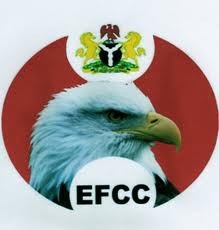Fines now imposed over bouncing Nigerian cheques
Chris Hamblin, Editor, London, 13 April 2015

The Central Bank of Nigeria is issuing dire portents against anyone, rich or otherwise, who bounces a cheque. Relationship managers might do well to stop their clients - and their institutions, compliance officers and CEOs - from becoming 'dud cheque offenders'.
Invoking the Dishonoured (Dud) Cheques Act 1977, the central bank has taken steps to diminish the incidence of bouncing cheques. Now that the regulator has compiled and disseminated information about the serial issuers of dud cheques with the help of banks' returns, it now requires banks to do the following.
1. Recall/cancel all unused cheque books issued to serial issuers of dud cheques.
2. Bar each affected customer from using the clearing system for 5 years.
3. Forward the names of 'dud cheque offenders' to the three private credit bureaux and the Credit Risk Management System (CRMS). The customers’ names are to be listed on the database of the private credit bureaux and CRMS for 5 years apiece, after which time the offenders will be "eligible for removal," whatever that means. However, if any offender is found wanting after his name is removed, such an offender shall be permanently reinstated on the database of both the three credit bureaux and the CRMS.
4. Bar the serial issuers of dud cheques from accessing credit facilities from the banking system for 5 years apiece. No institution shall, except with the prior written approval of the CBN, remove such a person’s name from the three credit bureaux and the Credit Risk Management System (CRMS).
5. Perform a status check on a potential customer from CRMS and at least two credit bureaux before on-boarding a customer.
6. If an institution fails to report a serial dud cheque issuer in its return to the CBN, CRMS and private credit bureaux as required, it shall be considered as concealment and a misrepresentation of material fact and the affected institution shall be penalized in accordance with the relevant provisions of the Banks and Other Financial Institutions Act 2004.
In addition, the Chief Executive Officer (CEO), the Chief Financial Officer (CFO), the Chief Compliance Officer (CCO) and the Chief Risk Officer (CRO) shall be liable to sanctions in line with the relevant provisions of the 2004 Act. Any institution that contravenes these rules shall be 'sanctioned'. These measures came into effect at the beginning of this month.
This is in furtherance to directives set out in letters dated 5th July 2013 and 13 May 2014, reference nos FPR/DIR/CIR/GEN/03 /005 and BSD/DIR/GEN/LAB/07/012 respectively. The inflation rate in Nigeria was recorded at 8.4% in February, after yo-yoing up and down for a year. The inflation rate averaged 12.25% between 1996 and the present day, reaching an all-time high of 47.56% in January of 1996 and a record low of -2.49% in January of 2000 (bouts of hyperinflation are always followed by deflation). The National Bureau of Statistics of Nigeria compiles the statistics.
RMs might also alert their clients to the fact that the central bank is cracking down on the increasing use of foreign currencies in the domestic economy as a medium of payment for goods and services by both individuals and corporations. Its website states: "Some institutions [it does not say whether this includes financial institutions but one presumes so] price their goods and services in foreign currencies and demand payments in foreign currencies rather than the domestic currency (the Naira), which is the legal tender in Nigeria. The CBN Act 2007...states inter alia that the currency notes issued by the Bank shall be legal tender in Nigeria...for the payment of any amount.
"Furthermore, the Act stipulates that any person(s) who contravenes this provision is guilty of an offence and shall be liable on conviction to a prescribed fine or six months' imprisonment.
"This prohibition, however, is without prejudice to foreigners, visitors and tourists who are encouraged to continue to use their cards for payments or exchange their foreign currency for local currency at any of the authorised dealers’ outposts. The general public is hereby advised to report any contravention of the provision of this Act to the Economic and Financial Crimes Commission (EFCC) and the Central Bank of Nigeria (CBN) for appropriate action."
On 7th April, as if to emphasise the seriousness that the Government attaches to this sort of activity, Justice Yusuf Ubale of the Kano State High Court sentenced one Aliyu Zakari, the chief executive of AZH Enterprises Limited, to two years' imprisonment for issuing dud cheques. The EFCC pressed the charges.












